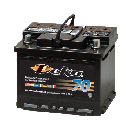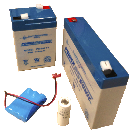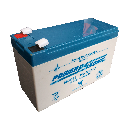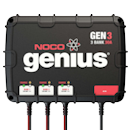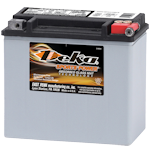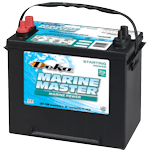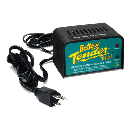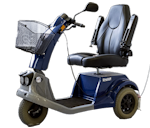When people refer to what's "hot" in rechargeable batteries, they're usually talking about trends or key features that are in demand based on advancements in technology, consumer preferences, and specific application needs. As of now, here are some of the most important factors that people look for in rechargeable batteries:
1. Longer Battery Life (Capacity & Runtime)
-
Consumers want batteries that last longer on a single charge. This is particularly important for devices like smartphones, laptops, electric vehicles (EVs), and portable electronics.
-
High capacity is often measured in mAh (milliampere-hours) for small devices and kWh (kilowatt-hours) for larger applications like EVs.
- People are looking for batteries with improved energy density, meaning they can store more energy in a smaller size.
2. Faster Charging
-
Fast-charging technology is a major trend. People want batteries that can charge quickly without compromising longevity.
- Batteries with fast-charging capabilities are particularly important for smartphones, electric cars, and other portable devices.
-
Battery chemistry innovations like Li-ion and Li-Po are key enablers of faster charging speeds.
3. Longer Lifespan (Durability)
-
Durability and cycle life are becoming more important. Consumers expect batteries that can handle many charge and discharge cycles without significant degradation in performance.
- Rechargeable batteries that last for years (with hundreds or thousands of charge cycles) are highly sought after, especially in lithium-ion and lithium-polymer chemistries.
- For electric vehicles and high-use devices, battery longevity (how many years or charge cycles it will last) is a key factor.
4. Improved Safety Features
-
Safety is a major concern with rechargeable batteries, especially in consumer electronics and EVs. People want batteries that won’t overheat, catch fire, or explode.
-
Thermal management systems (like cooling systems) and battery management systems (BMS) are in high demand to prevent overheating, which is a common issue in lithium-ion and lithium-polymer batteries.
- Some newer chemistries, like solid-state batteries, are touted as being safer and less prone to fire or leakage.
5. Eco-Friendliness / Sustainability
- As consumers become more environmentally conscious, sustainable rechargeable batteries are becoming a "hot" topic.
- People are increasingly looking for recyclable or eco-friendly batteries. Lithium-ion batteries are common, but people also want options that are less harmful to the environment after they are disposed of.
-
Second-life battery applications (repurposing EV batteries for stationary storage after they lose some capacity) are also gaining interest as a sustainable solution.
6. Cost-Effectiveness
-
Price-to-performance ratio remains a key deciding factor for most consumers. Even with advanced technology, affordable pricing is crucial.
- The cost of lithium-ion batteries has been falling, making them more accessible for use in everyday electronics, electric vehicles, and renewable energy storage systems.
7. Wireless Charging
-
Wireless charging technology is growing in popularity, especially in smartphones, wearables, and other consumer electronics. Batteries designed to work with inductive charging pads or MagSafe (for Apple products) are a trend.
- This convenience factor makes batteries that support Qi wireless charging highly attractive.
8. Battery Chemistries Beyond Lithium-Ion
- There's growing interest in alternative battery chemistries beyond traditional lithium-ion, such as:
-
Solid-state batteries: These offer higher energy density and improved safety but are still in the early stages of commercialization.
-
Sodium-ion and zinc-carbon batteries: These are cheaper alternatives to lithium-ion and have potential for wider use in applications where high energy density isn't the main concern.
-
Graphene batteries: These are touted for faster charging times and higher capacities, though they are still in development.
9. Smart Features
-
Smart batteries with integrated Bluetooth or Wi-Fi capabilities are increasingly common. These batteries can communicate with apps or devices to provide information on charge status, health, and usage patterns.
-
Battery monitoring systems (BMS) that give consumers more control over their battery's performance and condition are in high demand.
10. Compatibility and Customization
-
Battery compatibility with existing devices or systems (like smartphones, laptops, power tools, etc.) is critical. People want batteries that are easy to swap out or replace.
-
Customizable batteries (e.g., for specific applications like drones, cameras, and power tools) are becoming more popular as users want batteries tailored to their exact needs.
Key Takeaway:
In short, what's "hot" in rechargeable batteries right now is a combination of improved efficiency, speed, safety, and sustainability. Consumers are looking for batteries that are long-lasting, quick to charge, eco-friendly, and cost-effective—with innovative features like wireless charging and smart technology becoming more popular as well.





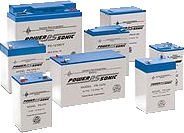 Power-Sonic Battery
Power-Sonic Battery Fios Batteries
Fios Batteries Security System Batteries
Security System Batteries